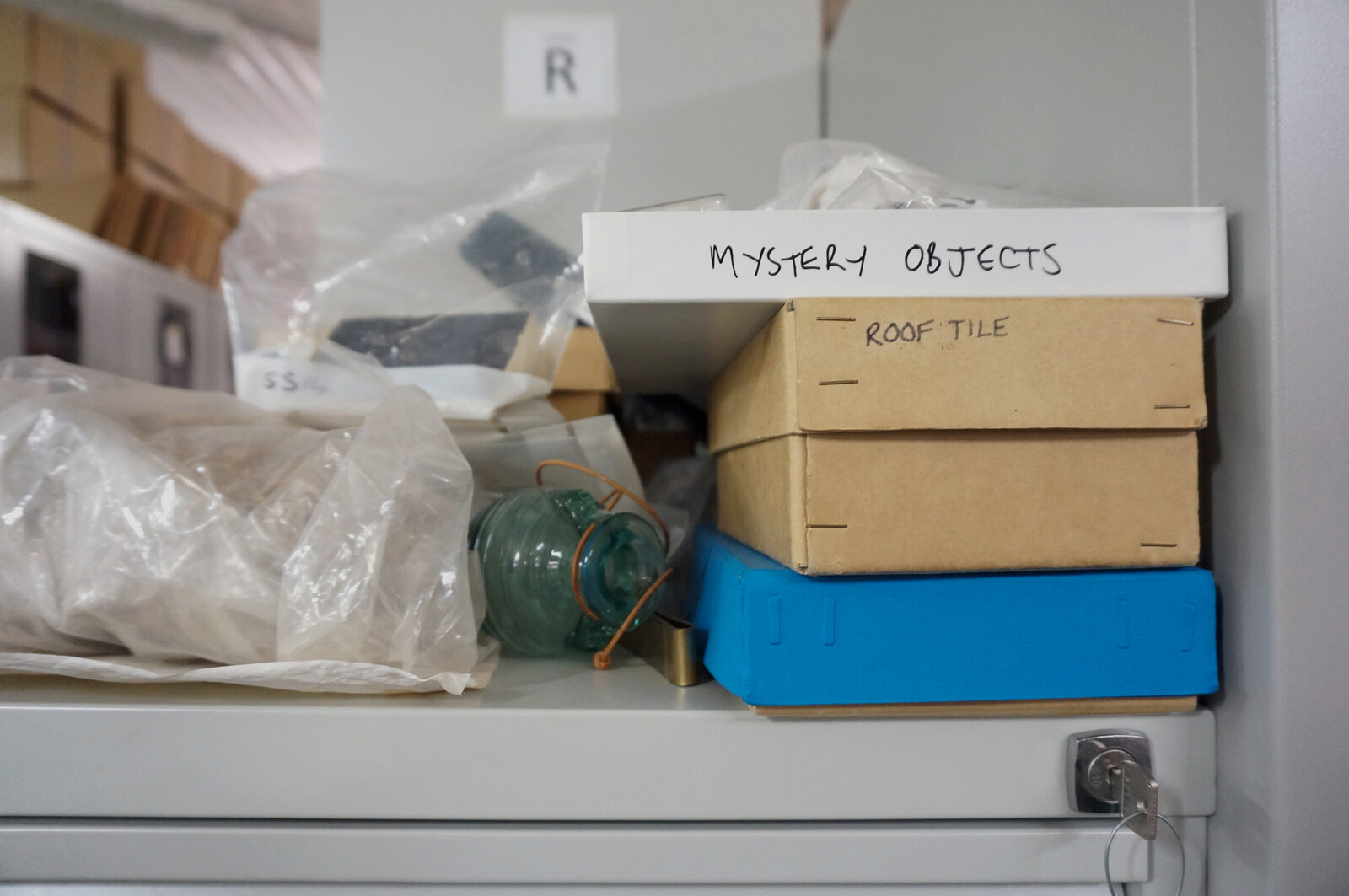What Can Be Seen
February 8–May 7, 2017
Surrey Street
Leader House
Sheffield S1 2LH
United Kingdom
T +44 114 278 2600
info@museums-sheffield.org.uk
This spring Museums Sheffield hosts a major new collaborative project by internationally renowned artists Tim Etchells and Vlatka Horvat. Showing at Millennium Gallery, Sheffield, What Can Be Seen presents a bold, playful reimagining of the city’s historic museum collections alongside new work by the artists.
What Can Be Seen draws from Museums Sheffield’s diverse holdings to explore how we attempt to understand the world through history, science, art, narrative and the act of collecting itself. By displaying unexpected groupings of artefacts, specimens and drawings from across the city’s collections, alongside objects that are still packed or half-packed in their storage boxes or crates, the exhibition presents the museum as a playful Wunderkammer, a place of organised knowledge and study, and as a back-room depository of both ordinary and extraordinary things whose role and history are not always fully known.
Visitors to What Can Be Seen encounter a wealth of objects and images from archaeology, natural sciences, decorative art, visual art and social history, including pocket watches, biological specimens and Egyptian artefacts, as well as weather data charts, early 20th century puppets and a set of empty picture frames from which the paintings have been removed for conservation. Idiosyncratic and surprising, Etchells and Horvat’s project zooms in on the act of care, observation and study by curators, scientists, artists and others as they try to record, understand and communicate the world we live in. The artists point our attention not just to the thorough and well-ordered knowledge to which the museum aspires, but also to the limits of knowledge and understanding and to the occasional absurdities, gaps in information and small mysteries that are hidden in its storage rooms. Presenting contradictory impressions and versions of the museum, What Can Be Seen contrasts the everyday life of objects out-of-sight with their starring role in gallery exhibition.
The exhibition also includes two new series of photographic works produced by Etchells and Horvat, titled “No Contextual Information” and “Card Index (Details)” (both 2017). Images comprising these series bring to the foreground the “hidden” processes and systems used by the institution and its curators as they engage in the collecting, cataloging and keeping track of objects in their care.
Tim Etchells (1962) is an artist and a writer based in London and Sheffield. He has worked in a wide variety of contexts, notably as leader of the world-renowned Sheffield-based performance group Forced Entertainment and in collaboration with a range of visual artists, choreographers and photographers.
Vlatka Horvat (1974) is an artist based in London, working across a wide range of forms, namely sculpture, installation, drawing, performance and photography, presenting her work in various contexts—from gallery spaces through theatre and dance festivals to the public realm.
Etchells and Horvat have collaborated on several projects before; having produced video works together, as well as creating and performing in several live performance pieces. The artists harbour a close and ongoing dialogue, frequently acting as sounding boards for one another in their individual practices. What Can Be Seen is their first large scale museum-based collaboration.
Tim Etchells & Vlatka Horvat: What Can Be Seen continues at the Millennium Gallery until May 7. Entry to the exhibition is free.
What Can Be Seen is supported by Arts Council England.
The exhibition forms part of Making Ways, a new programme of exhibitions, residencies and events supported by Sheffield Culture Consortium through Arts Council England which will showcase, celebrate and develop the exceptional contemporary visual art produced in Sheffield.
For more information and media enquires please contact:
Chris Harvey, Communications Manager, Museums Sheffield
chris.harvey [at] museums-sheffield.org.uk / T 0114 278 2624
Hours: Monday–Saturday 10am–5pm,
Sunday 11am–4pm


